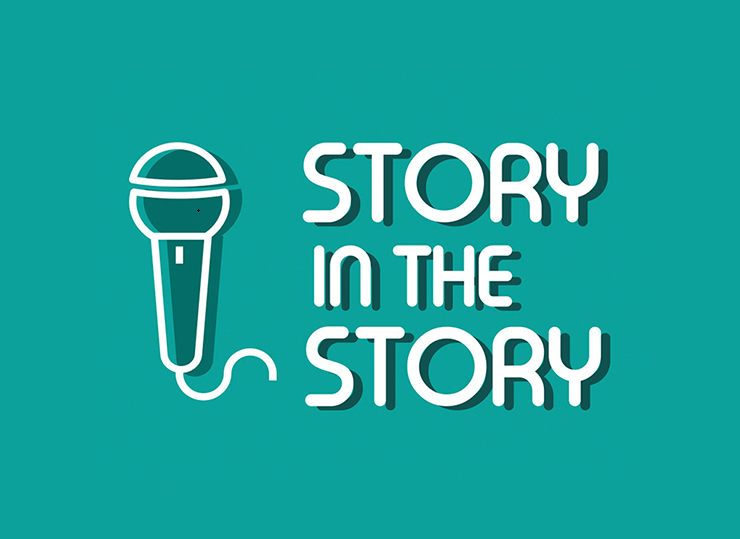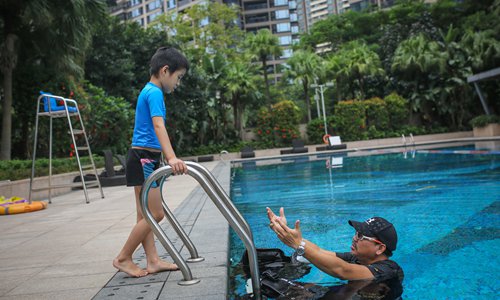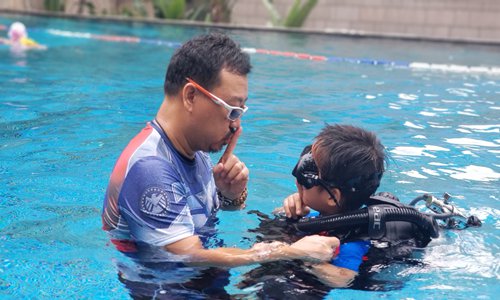
From the People's Daily App.
This is Story in the Story.
China has more than 1,800 rehabilitation centers for treating children with autism. The disease affects at least 10 million people in China, including more than 2 million children.
In the US, the estimated autism prevalence in 2018 was 1 in 59.
Autism is a neurodevelopmental disorder characterized by varying degrees of impairment in communication skills and social interactions and by restricted, repetitive patterns of behavior.
Improved conditions for children and adults living with Autism Spectrum Disorder (ASD) are due to changes both from top-down, the government and policymakers, and bottom-up, thanks to activists and parents' groups.
"Ever since China ratified the UN Convention on the Rights of Persons with Disabilities in 2008, things have improved a lot," said Lian Jinhai, a father of a child with ASD in Zhengzhou.
Today’s Story in the Story looks at how China is increasing its autism research and treatment efforts while implementing innovative programs to help those who have the neurological disorder.

Chan Leung-bo encourages a boy to come down to the swimming pool in Guangzhou, South China's Guangdong Province on September 28, 2018. (Photo: VCG)
A group of special scuba divers can be seen painting, playing, doing math, and writing every Tuesday and Thursday at an indoor swimming pool in Ersha Island, Guangzhou, South China's Guangdong Province.
The Diving for Humanity (DFH) program, the brainchild of Chan Leung-bo, was launched in 2016 in Guangzhou Province. The program aims to help autistic children to fit into healthy life through scuba diving.
"Lifting their mood is the most obvious and strongest effect, because it's relatively quiet underwater, and along with the weightlessness, it makes the environment feel like a womb," Chan explained, adding, “they feel safe there."
For autistic children, bringing about a small change in their behavior takes a lot more effort than in other children. Seven years ago, Chan tried to teach his sons to adjust their breathing and control their moods through scuba diving. "When I taught them to swim, they liked the feeling of being underwater and would listen to me more," said Chan.
Shum Chakwing, a co-founder of DFH, who learned scuba diving from Chan, was inspired and told Chan to spread the method to benefit more autistic children after a casual conversation on the progress Chan's two sons made from diving.
"Jogging, swimming, and many other sports require power and speed, while diving requires relaxation, which helps these special children find their own universe," Chan said.
On the first day of the program, a student who was 1.8 meters tall cried and rolled around on the edge of a public pool because he was so scared.
Eventually, the Guangdong Swimming Association allowed Chan to use the pool when other classes weren't being held there.
At first, the students made slow progress, as some children were volatile, and it took a long time to get them to stay calm and follow his instructions.
One boy once lost his temper and hit his mother because of a squabble and refused to apologize. "That day, I stood there for one and a half hours confronting him until he apologized to his mother," said Chan.

Chan Leung-bo teaches an autistic kid scuba diving in a swimming pool. (Photo: Global Times)
In addition to teaching autistic children scuba diving, Chan also talks with their families to learn more about their daily lives. "Family environment is important since family members should work hard to instruct the children for the rest of the week after a two-hour class," Chan said.
One parent told Chan after her child joined DFH, "I saw a glimmer of hope when I met your team, and you brought me a beam of sunlight."
Another parent said, "As a parent, saying 'thank you' is nowhere near enough to express my heartfelt appreciation for what you've done for my child's growth."
"Things might seem bleak for most families with autistic children, but I see it as an opportunity that allows us to devote more energy and love to our families," said Chan.
Chan takes a four-hour bus trip from Hong Kong to Guangzhou every Monday and goes back to Hong Kong on Friday to spend time with his sons.
Chan video chats with his sons every day after the training. "I actually sacrifice time with my sons at home," Chan said.
Chan said that while DFH is now receiving financial help from a philanthropic foundation, support is still limited.
So far, a total of 55 children have participated in the program, which is free for most of them. Chan hopes to bring more autistic children to DFH so that he can obtain more data, and this form of therapy will be more accepted by society.
"I hope the children can act as normally as possible and live a life like normal people," said Chan.
Chan hopes more philanthropic, and public welfare organizations and volunteers will be able to join this program for autistic children. "A free heated swimming pool is also fine so that we can help more autistic children and their families," he said.
(Produced by Nancy Yan Xu, Lance Crayon, Brian Lowe and Da Hang. Music by bensound.com. Text from China Daily and Global Times.)


